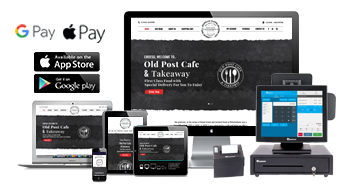Table of Contents
Discover the secret ingredients to success with our proven restaurant marketing strategies. Elevate your brand and attract hungry diners like never before.
To draw in their desired customer base, restaurants need to differentiate themselves from the competition and build strong online visibility. To keep customers, establish brand awareness, and ultimately propel business success, robust marketing techniques are crucial in the competitive restaurant industry.
In helping establishments thrive, the outline aims to provide a complete guide to restaurant marketing strategies that have illustrated their effectiveness. Through the exploration of various techniques, you will discover the power of marketing ideas that can raise your restaurants brand, increase customer engagement, and create growth.
Understanding Proven Strategies
A. Definition of Proven Marketing Strategies
Marketing techniques refer to those proven techniques that have been tried in achieving desired marketing strategies. It consistently yields favourable outcomes in a variety of industries, including the restaurant business.
B. The importance of utilising strategies with a track record of success
With a proven track record of success, implementing strategies offers several advantages for restaurants. It minimises the risk that comes with untested methods, which can be costly. Restaurants can allocate their resources more efficiently and increase their chances of achieving positive outcomes.
Restaurants that benefit from the collective knowledge and experience of others with proven strategies often incorporate best practices and industry insights.
Identifying Key Restaurant Marketing Strategies
Restaurants must identify and influence a range of proven tactics tailored to their specific goals and target audiences in order to develop an effective marketing strategy.
Here are some key strategies to consider:
A. Restaurant Target Audience Analysis
For crafting effective marketing campaigns, conducting target audience analysis is crucial. To tailor customer messaging, channels, and offerings accordingly, restaurants must understand the demographics, preferences, and behaviours of the desired consumers.
B.Branding
A restaurant differentiates from its competitors by positioning with a strong brand and strategic positioning.
The unique brand identity and well-defined value proposition, which are consistent with messaging, will help attract customers. Strong strategic positioning and branding must be done in order to set the restaurant apart from its competitors.
C. Online presence and digital marketing for restaurants
Further on, restaurant email marketing engagement can seek influencer marketing opportunities with major social media platforms and get full optimisation of the website for search engines.
D. Restaurant Loyalty Programmes
It is less costly to acquire customers than it is to retain them through customer loyalty programs. Afterward, tightly connect with the client through loyalty programmes, giving them some personal experience that would make their word of mouth do advertisements for you as well as repeat business.
E. Partnerships and collaborations
Partnerships and forming strategic collaborations with complementary businesses or influencers can open up new marketing opportunities for larger audiences. Cross-promotions, or joint marketing campaigns, and co-branded events can take various forms.
F.Community Engagement
In order to build goodwill, engaging with the local community can help restaurants. Offering unique dining experiences, supporting local causes, and participating in community events can strengthen a restaurant’s ties to its surrounding area.
Implementing proven strategies
A. Setting clear marketing objectives
“Guidelines are always set to measure success” could well be a punchline. It is better to start at the beginningbefore implementation, that isby setting clear and measurable objectives.
B. Creating a Marketing Plan
While a marketing plan is an idea through the program context, a restaurant would prepare to stipulate the economy channels, resources, and tactical goal within definite exhaustive outlined objective. Further grounding of the plan should target an exclusive audience of set budget and prevailing competitive landscape.
C. Allocating resources effectively Effective marketing is a strategic soft spot of the restaurant in cases of human capital, financial resources, and spending resources. These restaurant strategies would have to take into consideration the projected effect on return on investment. D. Utilizing data analytics for continuous improvement The restaurants should use data and analytics in ways such as to enable the tracking of the performance of marketing campaigns. Taking customer feedback and constantly reading into metrics will help in the optimal planning and its tracking for the performance in due course of time. Use data and analytics in tracking the performance of your marketing campaigns. Overcoming Challenges in Implementing Marketing StrategiesA. Budget Constraints
On the other side of the same aspect, restaurants get implicated by budget constraint, especially when it is related to the concern of the implementation of marketing strategies if the restaurant is small and considers it a highly competitive market. The very first item has to be researched concerning development through influencer marketing collaborations to email marketing and leveraging in social media.
B. Competition analysis and differentiation
Identification has thus to be accurate in terms of looking at unique selling points that sets their brand and offerings apart. Such detailed analysis forms the basis on which marketing strategies get formulated and these help restaurants to position.
C. Adapting to Changes in Consumer Behaviour and Industry TrendsPreferences of consumers in the behavior of a restaurant business can abruptly change. The most likely developing companies in the sector will, therefore, be those that will be able to become innovative and agile in the new technology and novel dining experiences catering to changing consumer values in the marketplace.
Measuring Success and Adjusting Strategies
A. Key Performance Indicators (KPIs) for Evaluating Marketing Efforts
The restaurants will have to make sure they come up with the most relevant KPIs with regards to measuring the overall marketing strategies. The goals will also help these restaurants measure what their acquisition rates are, the traffic in their websites, general social media, and their incomes.
B. Monitoring and Analysing Data to Gauge Effectiveness
Data analysis becomes equally important in finding out the success of your marketing strategies through consistent monitoring as it makes one able to identify from where the key performance lies. Therefore, this data will highlight the opportunity for optimization in the areas and in which area your organization is working well.
C. Making Adjustments Based on Insights and Feedback
Restaurants, utmost of all, have to be very flexible in modifying marketing efforts with data outcomes and customer feedback – the marketing efforts consistently stay in line with the changes in target audience needs and preferences and respectively produce an impact.
Conclusion
The results point out that in the fast-growing, trend-sensitive food industry environments of today, it has succeeded in being recognized, in the picked interest of customers, and more successful since then.
These food delivery systems would also come in handy while studying overall marketing to expand the list of customers you have, gather vital data, bring operations into a smoothly progressive state and bring to which successful, proven marketing efforts have accumulatively come.










